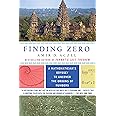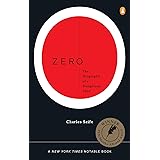
Enjoy fast, free delivery, exclusive deals, and award-winning movies & TV shows with Prime
Try Prime
and start saving today with fast, free delivery
Amazon Prime includes:
Fast, FREE Delivery is available to Prime members. To join, select "Try Amazon Prime and start saving today with Fast, FREE Delivery" below the Add to Cart button.
Amazon Prime members enjoy:- Cardmembers earn 5% Back at Amazon.com with a Prime Credit Card.
- Unlimited Free Two-Day Delivery
- Streaming of thousands of movies and TV shows with limited ads on Prime Video.
- A Kindle book to borrow for free each month - with no due dates
- Listen to over 2 million songs and hundreds of playlists
- Unlimited photo storage with anywhere access
Important: Your credit card will NOT be charged when you start your free trial or if you cancel during the trial period. If you're happy with Amazon Prime, do nothing. At the end of the free trial, your membership will automatically upgrade to a monthly membership.
Buy new:
-31% $10.97$10.97
Ships from: Amazon.com Sold by: Amazon.com
Save with Used - Good
$9.53$9.53
Ships from: Amazon Sold by: Murfbooks





Download the free Kindle app and start reading Kindle books instantly on your smartphone, tablet, or computer - no Kindle device required.
Read instantly on your browser with Kindle for Web.
Using your mobile phone camera - scan the code below and download the Kindle app.

OK
The Nothing that Is: A Natural History of Zero 1st Edition
Purchase options and add-ons
Robert Kaplan's The Nothing That Is: A Natural History of Zero begins as a mystery story, taking us back to Sumerian times, and then to Greece and India, piecing together the way the idea of a symbol for nothing evolved. Kaplan shows us just how handicapped our ancestors were in trying to figure large sums without the aid of the zero. (Try multiplying CLXIV by XXIV). Remarkably, even the Greeks, mathematically brilliant as they were, didn't have a zero--or did they? We follow the trail to the East where, a millennium or two ago, Indian mathematicians took another crucial step. By treating zero for the first time like any other number, instead of a unique symbol, they allowed huge new leaps forward in computation, and also in our understanding of how mathematics itself works.
In the Middle Ages, this mathematical knowledge swept across western Europe via Arab traders. At first it was called "dangerous Saracen magic" and considered the Devil's work, but it wasn't long before merchants and bankers saw how handy this magic was, and used it to develop tools like double-entry bookkeeping. Zero quickly became an essential part of increasingly sophisticated equations, and with the invention of calculus, one could say it was a linchpin of the scientific revolution. And now even deeper layers of this thing that is nothing are coming to light: our computers speak only in zeros and ones, and modern mathematics shows that zero alone can be made to generate everything.
Robert Kaplan serves up all this history with immense zest and humor; his writing is full of anecdotes and asides, and quotations from Shakespeare to Wallace Stevens extend the book's context far beyond the scope of scientific specialists. For Kaplan, the history of zero is a lens for looking not only into the evolution of mathematics but into very nature of human thought. He points out how the history of mathematics is a process of recursive abstraction: how once a symbol is created to represent an idea, that symbol itself gives rise to new operations that in turn lead to new ideas. The beauty of mathematics is that even though we invent it, we seem to be discovering something that already exists.
The joy of that discovery shines from Kaplan's pages, as he ranges from Archimedes to Einstein, making fascinating connections between mathematical insights from every age and culture. A tour de force of science history, The Nothing That Is takes us through the hollow circle that leads to infinity.
- ISBN-100195142373
- ISBN-13978-0195142372
- Edition1st
- PublisherOxford University Press, U.S.A.
- Publication dateDecember 7, 2000
- LanguageEnglish
- Dimensions7.73 x 4.68 x 0.6 inches
- Print length240 pages
Books with Buzz
Discover the latest buzz-worthy books, from mysteries and romance to humor and nonfiction. Explore more
Frequently bought together

Customers who viewed this item also viewed
Editorial Reviews
Review
Book Description
About the Author
Product details
- Publisher : Oxford University Press, U.S.A.; 1st edition (December 7, 2000)
- Language : English
- Paperback : 240 pages
- ISBN-10 : 0195142373
- ISBN-13 : 978-0195142372
- Item Weight : 8 ounces
- Dimensions : 7.73 x 4.68 x 0.6 inches
- Best Sellers Rank: #476,776 in Books (See Top 100 in Books)
- #212 in Popular & Elementary Arithmetic (Books)
- #299 in Math Games
- #305 in Mathematics History
- Customer Reviews:
About the author

Discover more of the author’s books, see similar authors, read author blogs and more
Customer reviews
Customer Reviews, including Product Star Ratings help customers to learn more about the product and decide whether it is the right product for them.
To calculate the overall star rating and percentage breakdown by star, we don’t use a simple average. Instead, our system considers things like how recent a review is and if the reviewer bought the item on Amazon. It also analyzed reviews to verify trustworthiness.
Learn more how customers reviews work on Amazon-
Top reviews
Top reviews from the United States
There was a problem filtering reviews right now. Please try again later.
But this is by no means a disqualifying factor. The book is actually well-written overall and very thoroughly researched. There are some reviews that pout over the author's conclusions regarding the historical origin of the concept of zero but these conclusions are well-documented and the assessment comes honestly enough. If you truly disagree, then do your own research and write your own book! As this is much more than a simple historical review of the origins of the concept of nothing in mathematics, even if you disagree with the author's conclusions, there is still much to explore and learn.
Most of all, this book does and excellent idea of documenting why the very concept of zero was so hard to come by and gives the reading a reasonable understanding that this is no insignificant advancement in human understanding.
Kaplan's book looks at all the aspects of Zero, from what it meant, to the symbols used for it and where they might have come from, to its importance in mathematics and for that matter in philosophy. His note at the front of the book suggests that the reader need only have had high-school algebra and geometry, but to get the most out of this book it would be better to have had some higher math, as well as a full and well-rounded education as Kaplan makes references which hit on a number of areas.
The book itself almost defies being placed into a category. There are elements of history, philosophy, psychology, and of course math contained in its seventeen chapters (appropriately starting with chapter Zero). The first nine chapters have a great deal to do with the history of the number and the symbol used for it, and how it impacted Mesopotamia, Greece, India, and even a chapter on how it was perceived in Mayan culture.
The book then transitions from more of a history to more about how Zero is used in mathematics, covering issues such as what is the a number to the power of 0, and then by extension what is 0 to the power of 0. It also touches on Zero's important relative Infinity. Note that the chapters almost always offer a blend of history, math, and other subjects, and I am merely offering my perspective on where the greater focus is in each of these sections.
Later in the book, the focus becomes much wider, looking at Zero's impact on different areas of society, including everything from literature to technology with the coming of binary systems such as computers. Kaplan somehow manages to contain all this in a book of fewer than 220 pages, so the pages and chapters are packed with a lot to think about.
The weakness of the book is that it doesn't easily fit into any category. It is not a scholarly treatment of the subject, and in fact Kaplan admits that some of what he writes is based on weak evidence, or in his words he has "tried to bridge a chasm on the slenderest threads of evidence". At the same time, I would not think this is a good book for a novice to math, or history, or many other subjects. As a result, there is probably a rather limited audience for this type of book.
As much as I love the subject, I am going to round down to three stars overall, partially due to the issues with finding an audience for the book as it is written, and partially due to the huge number of references he makes, without providing notes and a bibliography. To be fair he does provide a link to these in his "Note to the Reader" at the front of the book, but one can only hope that the link remains there for as long as this book is available.
Also as others have said the writing style is sometimes very hard to follow. He really likes to drop hints of how much he knows in other fields. I believe people should read books that are hard for them but for a book that is meant to appeal to a wide audience this is overkill. One example is when he was making an analogy using wine. "Make yourself comfortable and have with your tasting a meringue, a dish of trifle or any frothy confections the called in Elizabethen times "empty dishes." Later he mentions essencia (of course used the Hungarian spelling too 🙄) in reference to something small but powerful. Not only would you have to be a wine drinker to get this reference you would have to know what some obscure and extremely expensive wine was. Why do this? It is pointless and pedantic. The whole book was like this. There is no reason to force your readers to google something every few pages that has absolutely nothing to do with the subject at hand just because you wanted to sound smart.
Saying the author likes these kinds of references. If James Joyce wrote a book about the history of Zero this would be that book, and that is not a compliment.
Top reviews from other countries
Per quanto riguarda il testo, esso risulta molto interessante: traccia la storia affascinante della "creazione" del numero zero. In alcuni punti può sembrare abbastanza tecnico/scientifico, ma resta comunque una lettura valida per tutti coloro che sono interessati a questo tipo di argomento.
Personalmente, ho scelto la versione in lingua inglese perché mi fido sempre delle edizione Penguin.









